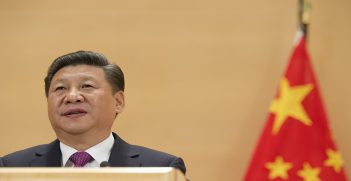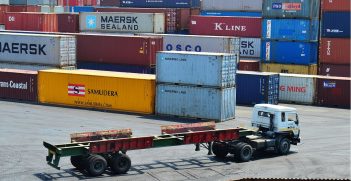The Dalai Lama's Succession Plans Could Move Beijing to Talks
Summary
A recent statement by the Dalai Lama that he might abandon the tradition of having his successor chosen by the traditional process of reincarnation could reflect an attempt to undermine Beijing’s interference in the eventual succession. Despite uncertainties over the succession, enduring frictions within the Tibetan exile community and its diminishing international prominence could lead to shifts in the exile movement’s relations with Beijing.
This could create an opportunity for the two sides to align on some key issues that currently separate them — including the succession question and the ability of the Dalai Lama to return to his Tibetan homeland — before their differences become irreconcilable, something the death of the current Dalai Lama before an agreement was reached would hasten.
Analysis
In an interview with German newspaper Welt am Sonntag on Sept. 8, the Dalai Lama made a comment indicating he could be the last Tibetan spiritual leader in order to avoid the accession of a weak leader who would “disgrace the Dalai Lama.” The statement raised speculation that the Dalai Lama could consider ending the centuries-old Tibetan religious tradition of choosing a reincarnated successor. While far from conclusive, the statement represented the spiritual leader’s latest stance as he contemplates his options for succession — a subject of dispute between the Chinese government and the Tibetan exile community.
This is not the first time the Dalai Lama has considered abandoning the incarnation process. In 2011, the spiritual leader suggested the possibility of overturning the tradition of reincarnation, which potentially diminishes the Dalai Lama’s authority over his successor and leaves a gap of five years or more between his death and the selection of the next leader. Instead, the Dalai Lama is signaling that he favors the process of emanation, which transfers the Dalai Lama’s spiritual authority to another person or a group of persons and enables the spiritual leader to select his successor before his death.
Incarnation Drama
The age of the Dalai Lama, now 79, has long raised concerns about a significant leadership vacuum within the Indian-based Tibetan exile community, the Dharamsala. Subsequently, this has led to concerns about the community’s ability to maintain internal coherence and international clout in its demand for an autonomous, if not independent, Tibet. Attempts to reach a settlement with the Chinese central government over issues ranging from Tibetans’ status to the succession and the Dalai Lama’s possible return to the Tibetan homeland have failed over the past years. Moreover, Beijing has attempted to interfere with the succession process, and weaken the Tibetan exile movement in hopes of influencing Tibetan affairs in the wake of the current Dalai Lama’s reign.
To prevent this potential power vacuum and a major disruption of the movement, the Dalai Lama separated the political leadership from the spiritual leadership — both responsibilities he previously held. The Tibetan government-in-exile launched an elected political body in 2011 — currently led by Prime Minister Lobsang Sangay — giving the Tibetan movement a sense of continuity despite the Dalai Lama’s successor having not yet been identified.
Nonetheless, since the Dalai Lama’s retirement from political leadership, the issue of reincarnation — and by extension, the selection of the next spiritual leader — soon became central in the conflicts with Beijing. The central government has maintained that the Tibetan religious tradition since the Qing Dynasty, in which the Dalai Lama must reincarnate within Tibetan territory and be endorsed by the central government, must be followed. In a bid to further weaken the Dalai Lama’s influence over succession, Beijing has been preparing to select its own reincarnation of the religious leader — a process similar to its controversial appointment of the Panchen Lama in 1995.
To resist Beijing’s attempts at interference, the Dalai Lama has indicated in recent years that his reincarnation could be found outside Tibet among exiled Tibetans and could be female. He has also left open the possibility of multiple emanations — transferring his spiritual authority to a group of people. By reminding the outside world of his authority over the reincarnation process, the Dalai Lama is attempting to undermine Beijing’s potential interference and the legitimacy of a successor unilaterally chosen by Beijing.
Nevertheless, with the issue of the Dalai Lama’s eventual return to the Tibetan homeland pending, it is a long-term concern for the Tibetan spiritual leader and the exile community that permanent exile will inevitably dilute their influence over Tibetan religious affairs and give Beijing an opportunity to maneuver.
Shifting Equilibrium
Exacerbating the Tibetan movement’s doubts about succession are enduring internal frictions and diminishing international prominence. The previous round of negotiations with China on the status of Tibet failed, fueling uncertainties of the movement’s political power. Furthermore, differences over which tactic to use in dealing with Beijing — the Dalai Lama’s “Middle Way” approach or the more radical efforts by groups like the Tibetan Youth Congress to openly pursue an independent state — have highlighted a split among the various Tibetan movements. As hopes for greater autonomy or independence diminish, Tibet’s political leaders are under more political pressure to reorient their mission from accepting permanent settlement abroad to internal debates about returning to the Tibetan homeland.
Moreover, the Tibetan exile community’s international prominence — built primarily upon the Dalai Lama’s personal prestige — seems to be diminishing. With Beijing’s larger international role and economic might, foreign governments have increasingly acknowledged the potential negative consequences of engaging with the Dalai Lama. As a result, more foreign governments have either reduced their contacts with the Dalai Lama or moved away from their direct support for the Tibetan government-in-exile.
These changes play into Beijing’s hopes that the exile movement’s strength and international support would wane, leading to fragmentation and helping Beijing reassert its authority in the Tibetan Plateau. With these goals in mind, Beijing appeared to be in no rush to secure a deal with Tibetan officials in recent years and emphasized that a dialogue with Dharamsala would not occur until the Dalai Lama truly relinquished the idea of Tibetan independence. However, as the succession crisis approaches, Beijing nonetheless fears that radical groups within Tibet and abroad could become more aggressive or even militant in the absence of the Dalai Lama’s leadership. Such factions could pose security concerns and become increasingly vulnerable to manipulation by outside forces, therefore weakening Beijing’s control over the critical Tibetan buffer zone.
The succession crisis and Tibetan exiles’ growing frustration could give Beijing and the Dalai Lama a chance to contain the rifts within the Tibetan exile community. However, this opportunity has a time limit, particularly considering the Dalai Lama’s age. Both sides reportedly have resumed some political contact over the past month, though Beijing maintains that such contact is confined to the issue of the Dalai Lama as opposed to the status of Tibet. Still, recent positive statements from the Dalai Lama regarding his possible return to Tibet could demonstrate some progress. The question is whether the Dalai Lama and Beijing can find a peaceful resolution to outstanding issues before these disagreements become unresolvable.
This article was originally published by Stratfor Global Intelligence. It is republished with permission.





